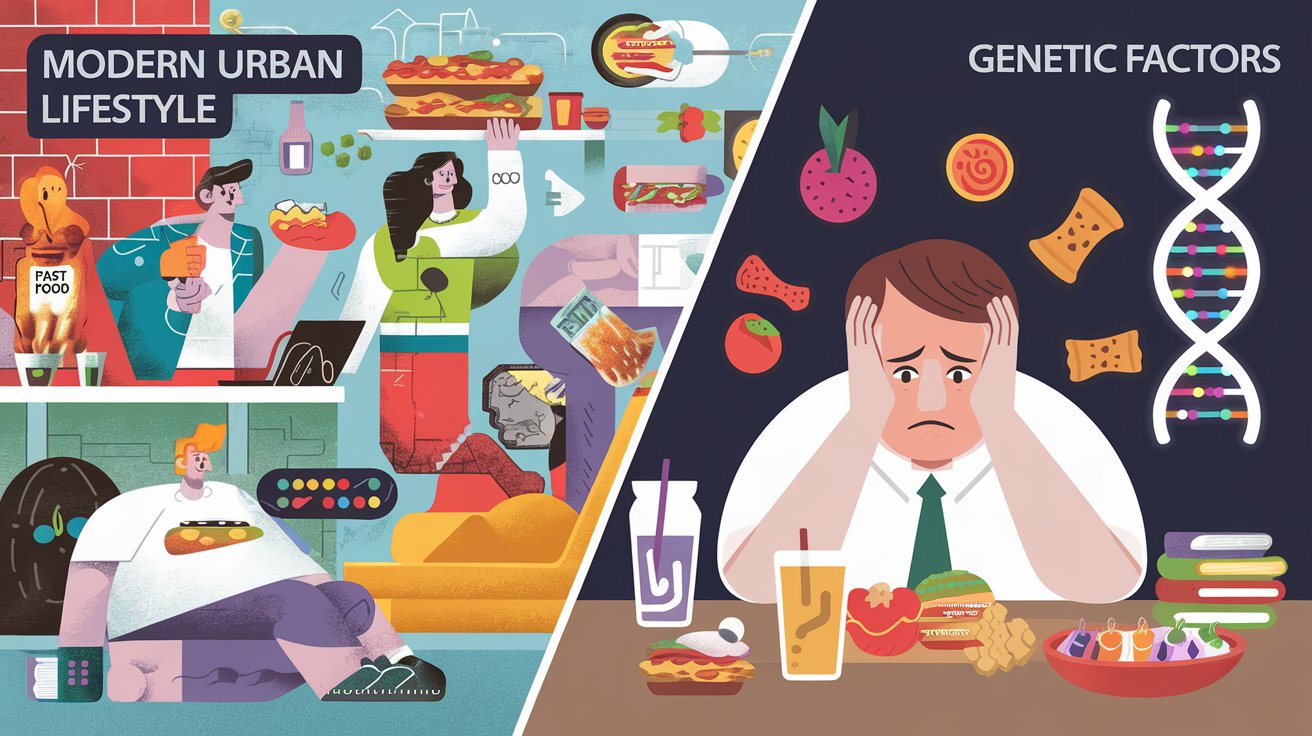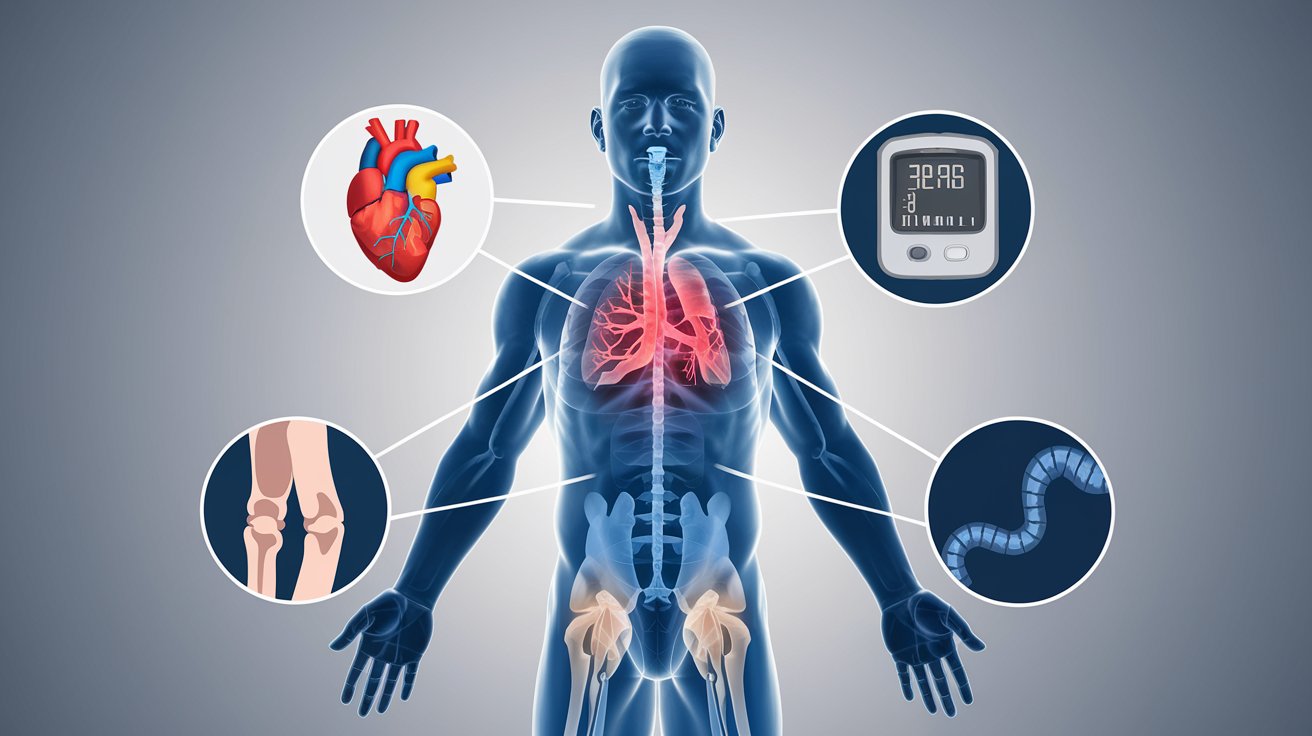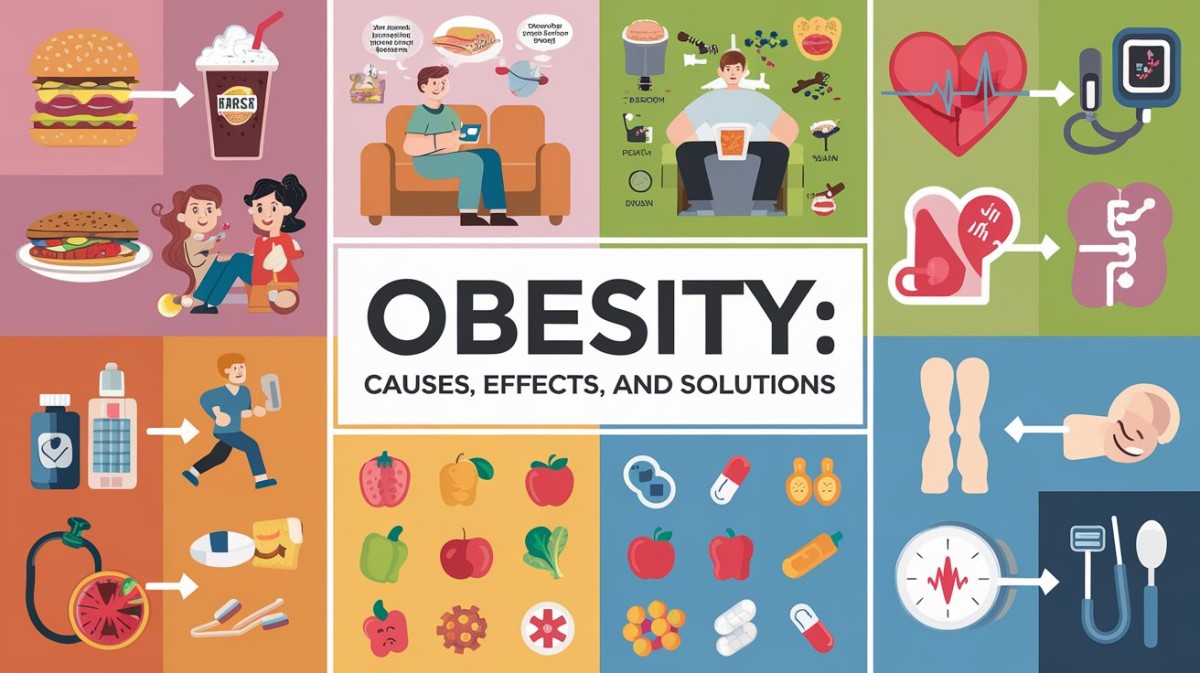It is worth to ask whether anyone has ever pondered as to what caused obesity to become one of the leading global concerns in recent years. Which aspects cause it to reach its worst and how can we work towards reversing the impacts that have been made by the disease? Overweight, a problem that many years has affected only developed countries, in the modern world becomes universal, combining everyone from the youngest to the richest. In this article, a closer look at the causes, impacts or consequences, but most critically, the likely remedies or ways forward to the growing phenomenon will be highlighted.
What is Obesity?
Most often obesity is defined as excessive body fat that has the potential to negatively impact health or wellbeing. This is normally done through the Body Mass Index (BMI) with the condition being defined for those with a BMI of 30 and above. But again, obesity is not a number it is a disease that factor in the individual genetic make up lifestyle of the person, environment and culture.
Also read more on Late Night Sleep Effects: Diabetes And Obesity.
Causes of Obesity

1. Unhealthy Diet Choices
Today, meals low in nutrients, high in unhealthy fats and sugars, and high in calories are taking over. High calorie, low nutrient foods in the form of processed foods are also responsible for some weight gain common to man.
2. Sedentary Lifestyle
While we have been able to advance in the technological era to have everything within our finger tips this has had a result of bringing a way interaction hence a way in the exercising part. Sitting for a long time in work reduces the calorie burn and therefore weight gain occurs.
3. Genetic Factors
Although genetics may be involved in decision making about diet and exercise, it can certainly influence the distribution of fat tissue as well as metabolism rate. There are persons, who may have the inherited existent for them to gain more weight easily.
4. Hormonal Imbalances
Other diseases like hypothyroidism or polycystic ovary syndrome (PCOS) cause metabolism changes and disrupt the hormonal regulation of weight.
5. Psychological Factors
Another cause of obesity is the feeding on foods that make the body emit heat when under stress, depressed or anxious. Eating is a form of managing the stress thus overeating is common.
6. Environmental and Social Influences
People living in the food desert or those who have no safe places to exercise can easily become obese.
The Effects of Obesity

Health Consequences
Obesity is linked to numerous health conditions, including:
❖ Cardiovascular Diseases: Risk of heart attack and stroke are elevated by high cholesterol and hypertension resulting from obesity.
❖ Type 2 Diabetes: Obesity develops insulin resistance and plays a central role in the development of type 2 diabetes.
❖ Joint Problems: That means holding extra weight puts stress on the joints, resulting to arthritis or chronic pain.
❖ Sleep Apnea: Some people with obesity become wrapped around the airways which leads to interrupted sleeping patterns.
❖ Certain Cancers: It has been evidenced that obesity increases the risk of developing some types of cancer including breast, colon and liver cancer.
Mental Health Impacts
Fewer obese people can go through harsh moments resulting in anxiety and depression in addition to being negatively rewarded by others, which can reduce their esteem. This is so because, social stigma and discrimination make these individuals to eat in wrong manners such as developing cycling of emotional eating and more intake of foods which lead to more obesity.
Economic Burden
Obesity and its complications are significant drains on health care resources in developed and developing countries. As well, organisms might have additional cost such as monetary costs associated with medication, treatment, and loss of productivity.
How to Combat Obesity
Adopt a Balanced Diet
The emphasis should be made on such nutrients that are richer in nutrients, like fruits, vegetables, lean meats, and whole-grain products. Reduce your consumption of sugar-sweetened beverages, refined foods and foods containing trans fats. One should also plan, prepare and portion their food to enhance the goal of taking a healthier diet.
Regular Exercise
Add at least 150 minutes of moderate-intensity aerobic exercises/ 75 minutes of vigorous exercise per week. Some exercises such as walking, swimming or cycling should be encouraged in that they are not only easy on muscles but also make exercising a fun affair.
Read our Blogs on Weight loss Exercises for more such insights!
Behavioral Therapy
Consult a psychologist or a counselor in order to help in the identification of the unhealthy eating pattern and or lack of it. Certain emotions make a person eat more than required; these are treatable under cognitive behavioral therapy.
Medical Interventions
In more severe instances, pharmacological therapy (such as liposomatible drugs) or surgery (bariatric operation) may be suggested. These should always be taken under health care giver advice.
Minority and Gender Workplace Programs
To engage the organisation in creating healthier habits, then organizations should avail healthy food products, exercise facilities and health conscious projects. In the same way, governments can restrict how food products and their marketing influence the choice made by consumers.
Education and Awareness
Many community programs and schools should create awareness of obesity in order for individuals to take right decisions concerning their health.
Preventing Obesity in Children

Obesity in children is increasing over time, and this is true why it is associated with long term effects. Parents and caregivers play a vital role in establishing healthy habits early on:
❖ Promote physical activities and try to spare a toddler from sitting in front of the television or a computer.
❖ Feed the children with proper meals and ensure that children understand what you call proper foods to take.
❖ Try eating right and exercising yourself as children tend to emulate their parents.
Read more on Weight loss Recipes and Weight loss Plans.
Overcoming the Stigma Around Obesity
It is the greatest challenge that has been facing the society due to cultural taboo on obesity. What causes someone to be fat is judged by society as a wasted instead of being regarded as a severe disease like cancer or heart disease. This course has been found to be a major reason why people do not ask for assistance and thus continue to self harm and stay ill.
To counter this, society ought to embrace people based on the beauty of their bodies at the same time encourage people to live healthy lives. Targets and goals should be related to health instead of aesthetics, in effort to improve the environment for all people.
Obesity: A Global Concern
We now know that this is not only a personal problem, but it poses as a state of affairs in public health. Data from the World Health Organization (WHO) shows that obesity incidence around the world has more than doubled since 1975. In the same contemporary world, nations are challenged by both undernutrition at one side of the scale and obesity on the other side. Efforts that are most needed at present are from the government, healthcare systems, and patients’ communities.
You can also check out more tips for effective weight loss.
Conclusion
Overweight and obesity is a complex issue and therefore to address this issue we need to take complex approaches. People can get aware about its causes and factors, then they can easily prevent it and make a healthy society. Because it is significant to remember, the goal to adopt a healthier pattern of living is not an overnight change but step by step we make.
Therefore, the initial action you are going to perform fighting against obesity? After you replace the fizzy drink with water, go for a walk or just try to be more gentle with yourself – every step is important. It is now time to determine who takes the control of your health and how the miraculous transformation occurs.
